In a legal market that’s more competitive than ever, simply being a good attorney is no longer enough to attract new clients. Clients today have endless choices—thanks to online searches, reviews, and advertising—and they often make decisions based on perception as much as performance. That’s where branding in legal marketing comes in. A strong legal brand doesn’t just attract attention; it builds trust, drives engagement, and ultimately helps convert leads into loyal clients.
For law firms and even individual attorneys, brand power isn’t about flashy logos or catchy slogans. It’s about reputation, consistency, and the emotional connection that clients feel when they see your firm’s name or interact with your team. Whether you’re a solo practitioner or a multi-office firm, your brand is the foundation of your public image—and if done right, it becomes one of your most valuable business assets.
Curious to learn more about branding in legal marketing? Keep reading for an overview of some important fundamentals.
Important Takeaways
- Brand power builds trust. In legal services, trust is everything. Most law firms prioritize trust and integrity as key brand values, and a well-built brand makes clients feel more confident in your firm’s professionalism, reliability, and values.
- Branding goes far beyond a logo. It includes messaging, tone, visual identity, client experience, and even how staff answer the phone or follow up after a meeting.
- Consistency is key. A powerful legal brand looks, sounds, and feels the same across every platform and interaction—from your website to social media to in-person consultations.
- Your reputation feeds your brand—and your brand amplifies your reputation. Testimonials, online reviews, and thought leadership all contribute to your brand’s trustworthiness.
- Personal branding matters for individual attorneys. Building visibility and credibility as a professional can reinforce the firm’s brand and expand your reach.
Understanding the Law Firm’s Brand
A law firm’s brand is much more than just a logo or a catchy tagline; it’s the embodiment of the firm’s values, mission, and personality. Understanding your law firm’s brand is crucial for developing a successful marketing strategy. This involves identifying your firm’s unique strengths, core values, and mission, as well as understanding the needs and preferences of your target audience. Many law firms struggle to define their brand, but with a clear understanding of these elements, you can create a strong foundation for your marketing efforts. By aligning your brand with your firm’s values and mission, you can build a brand reputation that resonates with potential clients and sets you apart from the competition.
What Makes a Legal Brand Powerful?
In the legal industry, brand power doesn’t come from being trendy or flashy—it comes from being dependable, recognizable, and authentic. A powerful legal brand sends a clear message about who you are, what you do, and why you do it better than others. It helps potential clients quickly understand what to expect from your firm, thereby enhancing brand recognition.
But brand power isn’t built overnight. It’s shaped over time through a combination of visuals, voice, tone, service quality, and consistency. It comes from every part of the client journey—from the first website visit to the final invoice.
A strong legal brand typically reflects:
- Clear practice area focus
- Consistent tone and messaging
- High-quality design and presentation
- Thoughtful client engagement
- Positive reputation in the community or online
Clients want to feel confident in their legal representation, and a well-developed brand makes them feel like they’re in good hands.
Branding vs. Marketing: What’s the Difference?
It’s easy to confuse branding with marketing, but they’re not the same. Branding is who you are. Marketing is how you tell people about it.
Your brand is your identity. It includes your values, your tone, your client experience, and the perception people have of your firm. It’s not just what you say—it’s how you say it and how people feel when they hear it.
Marketing, on the other hand, involves the tactics you use to promote your firm. This includes advertising, content creation, social media, and SEO. Marketing tactics like advertising campaigns are essential for conveying your brand identity and reputation effectively. Without a strong brand, marketing efforts may feel disjointed or forgettable.
Think of it this way: Marketing gets their attention. Branding makes them trust you.
Why Trust Is the Most Important Legal Currency
Legal clients are often dealing with high-stress, high-stakes issues. Whether it’s an employment dispute or a personal injury claim, they’re placing their lives and livelihoods in your hands. Before they consider legal fees or firm size, they ask one key question: “Can I trust you?” Attracting ideal clients hinges on building this trust.
This is where brand power makes the biggest impact. A professional, confident brand helps build trust at every stage of the decision-making process. It reassures potential clients that your firm is credible, capable, and empathetic.
Trust-building elements within your brand may include:
- A clean, modern website that’s easy to navigate
- Educational blog content that answers common questions
- Testimonials and case results from past clients
- Transparent communication from your intake team
- A track record of responsiveness and reliability
Clients trust brands that feel human, relatable, and established. If your brand can create that feeling, they’ll be far more likely to pick up the phone or schedule a consultation. That’s why effective branding in legal marketing must take these factors into consideration.
The Foundation of a Trustworthy Brand
To build brand power that inspires trust, law firms must focus on a few foundational elements. These aren’t just marketing techniques—they’re brand-building tools. These elements help a law firm stand out in a crowded market.
1. Clear Brand Positioning
Your firm should have a clearly defined position in the market, specifying the legal matters you solve. What legal problems do you solve? Who do you help? What sets you apart from others in your area?
Positioning isn’t just for large firms. Even solo attorneys benefit from defining their niche. When your branding clearly communicates your specialty, clients are more likely to see you as the right fit.
2. Professional Visual Identity
Your firm’s logo, colors, typography, and imagery all contribute to your brand identity. While design is only one piece of the puzzle, sloppy or outdated visuals can create doubt about your professionalism.
Investing in high-quality, consistent design helps communicate that you’re organized, detail-oriented, and modern, contributing to a consistent identity. This doesn’t mean you need to look corporate or cold—it simply means your visual brand should align with the tone and values of your legal practice.
3. Authentic Brand Voice
Your brand voice is the tone of your content, emails, blog posts, and client interactions. It should sound like a real person—not like a form letter or corporate robot, reflecting your law firm’s personality.
If you’re a community-based family law firm, your tone might be warm and approachable. If you handle high-stakes litigation, it might be assertive and confident. The key is consistency. If your website sounds one way, and your intake emails sound completely different, clients may be confused or put off.
The Role of Brand Messaging
Brand messaging is a critical component of law firm branding. It’s the narrative that communicates your firm’s unique value proposition and differentiates you from other law firms. A clear and consistent brand message can attract potential clients, establish credibility, and drive business growth. Your brand message should resonate with your target audience and reflect your firm’s values and mission. Crafting a compelling narrative that highlights your firm’s strengths and unique approach to practicing law is essential. By leveraging brand messaging, law firms can establish a strong brand identity and attract new clients who are looking for a firm that aligns with their needs and values.
Using Thought Leadership to Build Brand Authority
Thought leadership—sharing legal insights, commentary, or educational content—can elevate your firm’s credibility and reinforce brand trust. Clients want to hire attorneys who are knowledgeable, respected, and experienced. Publishing helpful content helps demonstrate all of these things. Thought leadership plays a crucial role in legal brand marketing by showcasing your firm’s unique qualities and building trust with the community.
You don’t need to write law review articles to be seen as a thought leader. You can build authority by:
- Posting short blogs answering common legal questions
- Creating videos that explain legal concepts in simple terms
- Sharing case results (while respecting confidentiality)
- Writing LinkedIn posts on legal trends or court rulings
- Appearing on local radio, podcasts, or community panels
The goal is to make your expertise visible. When leads search your name or firm, they should find informative, trustworthy content that positions you as a reliable authority.
Client Experience Is Branding
Every interaction a person has with your firm is part of your brand. It’s not just about marketing messages—it’s about how clients are treated, how quickly you respond, how clearly you explain things, and whether your promises are kept.
For example, if your website claims you offer “aggressive representation and 24/7 availability,” but no one calls a lead back until the next day, that hurts your brand. Similarly, if you claim to “treat clients like family” but provide a cold or rushed consultation, clients will sense the disconnect. Equally important is ensuring that your personal branding aligns with your firm’s brand.
The strongest legal brands live up to their promises. They deliver consistent experiences that reinforce what the marketing says.
Consistency Across All Channels
Consistency is what turns brand-building from a temporary project into a lasting strategy. Whether someone encounters your firm on social media platforms, Google, a billboard, or in person, the tone and visual presentation should feel familiar.
That includes:
- Website design that reflects your firm’s style and tone
- Consistent use of your logo, colors, and fonts
- Social media posts that match your firm’s voice and values
- Intake emails and confirmations that reinforce your professionalism
- Business cards, brochures, and signage that match your digital presence
When people recognize your brand, they begin to associate it with stability and reliability. If your firm looks different or sounds different every time someone encounters it, trust is harder to build.
The Role of Reviews and Testimonials
Social proof is one of the most powerful tools in branding, and it matters more in legal marketing than many attorneys realize. Reviews, testimonials, and referrals are signals to potential clients that other people trust your firm, and that trust is earned. Reviews, testimonials, and word of mouth referrals are signals to potential clients that other people trust your firm, and that trust is earned.
Client reviews should be easy to find on platforms like Google, Yelp, Avvo, or your website. They don’t have to be lengthy or dramatic—even simple, honest reviews that describe a positive experience can build trust quickly.
Video testimonials are even more effective. Seeing and hearing a real person talk about how your firm helped them adds emotional weight to your brand.
Of course, it’s important that reviews align with your firm’s positioning. If you’re branding yourself as highly responsive, but your reviews mention long response times, you may need to revisit your intake systems or communication policies.
Building a Brand for Individual Attorneys
While firms often focus on branding at the organization level, individual attorneys can benefit just as much from personal branding. In fact, many clients make decisions based on the perceived trustworthiness or relatability of a specific lawyer—not just the firm. Building a personal brand includes maintaining an updated LinkedIn profile with thoughtful posts and contributing to a consistent professional image.
Building a personal brand includes:
- Maintaining an updated LinkedIn profile with thoughtful posts
- Speaking at community events or CLE panels
- Being quoted in local media or writing legal op-eds
- Contributing to your firm’s blog or newsletter
- Highlighting your own case successes or community involvement
A strong personal brand enhances the firm’s brand—and vice versa. The two should work together to create a bigger picture of trust, credibility, and experience.
Branding for Multilingual or Community-Focused Firms
If your firm serves a specific demographic, such as Spanish-speaking clients, immigrant communities, or veterans, your brand should reflect that clearly and respectfully, understanding the unique needs within the legal sector.
This might mean:
- Creating a bilingual website or Spanish-language landing pages
- Featuring attorneys or staff who speak the client’s language
- Showing community involvement through photos, blog posts, or sponsorships
- Sharing resources specific to that community’s legal concerns
These brand elements demonstrate understanding, empathy, and commitment—and they go a long way in building trust with underserved populations.
Brand Building Through Follow-Up and Aftercare
Even after a case ends, your brand continues to matter. Many attorneys miss opportunities to reinforce their brand through post-case communication.
Simple gestures like sending a thank-you email, requesting a review, or checking in on a former client help extend the brand experience and leave a lasting impression, thereby enhancing the firm’s visibility.
Clients who feel valued are more likely to leave positive reviews, refer friends and family, or return for future legal needs. In this way, your brand helps generate long-term growth—not just one-time conversions.
Measuring Success in Law Firm Marketing
Measuring the success of your law firm marketing efforts is crucial to understanding the effectiveness of your branding strategy. Various metrics, such as website traffic, social media engagement, and lead generation, can provide insights into how well your marketing efforts are performing. By tracking these metrics, law firms can identify areas for improvement and make data-driven decisions to optimize their marketing strategy. Search engine optimization (SEO) is also a vital aspect of law firm marketing, as it helps increase your firm’s visibility in search engines and attract organic traffic to your law firm’s website. By leveraging SEO and other digital marketing channels, law firms can enhance their online presence and attract new clients.
Common Challenges in Law Firm Branding
Law firms often face several common challenges in branding, such as establishing a unique identity, creating a consistent brand message, and effectively leveraging social media. Many law firms struggle to differentiate themselves from competitors and build a strong brand reputation. Additionally, navigating the complexities of social media marketing, including creating engaging content, managing online reviews, and leveraging paid advertising channels, can be daunting. By understanding these challenges and developing a comprehensive branding strategy, law firms can overcome these obstacles and establish a strong brand identity that attracts potential clients and drives business growth. Effective law firm branding requires a deep understanding of the firm’s values, mission, and target audience, as well as a commitment to ongoing marketing efforts and adaptability to changes in the legal industry.
Contact Walker Advertising for Help Growing Your Firm’s Client Base
Whether you’re a solo or small firm lawyer or are part of a larger firm with plans for expanding your client base, it’s important to invest in your marketing efforts in order to hit your revenue and client growth goals. Here at Walker Advertising, we can help. As a marketing agency, we operate a number of popular attorney networks — including our Los Defensores and 1-800-THE-LAW2 brands — through which firms are able to access leads for various legal claims.
The leads we acquire through our various online marketing efforts — from social media marketing to targeted web ads — have been pre-qualified by our team so that you aren’t hassled by a flood of leads that are simply not relevant or actionable for your purposes. By accessing these quality leads, you’ll be well-equipped to select the best ones to grow your firm’s business.
Contact Walker Advertising today to connect to a member of our team who can explain how our legal networks can help your firm’s business thrive in this ever-changing digital marketing landscape.
We look forward to assisting you.






